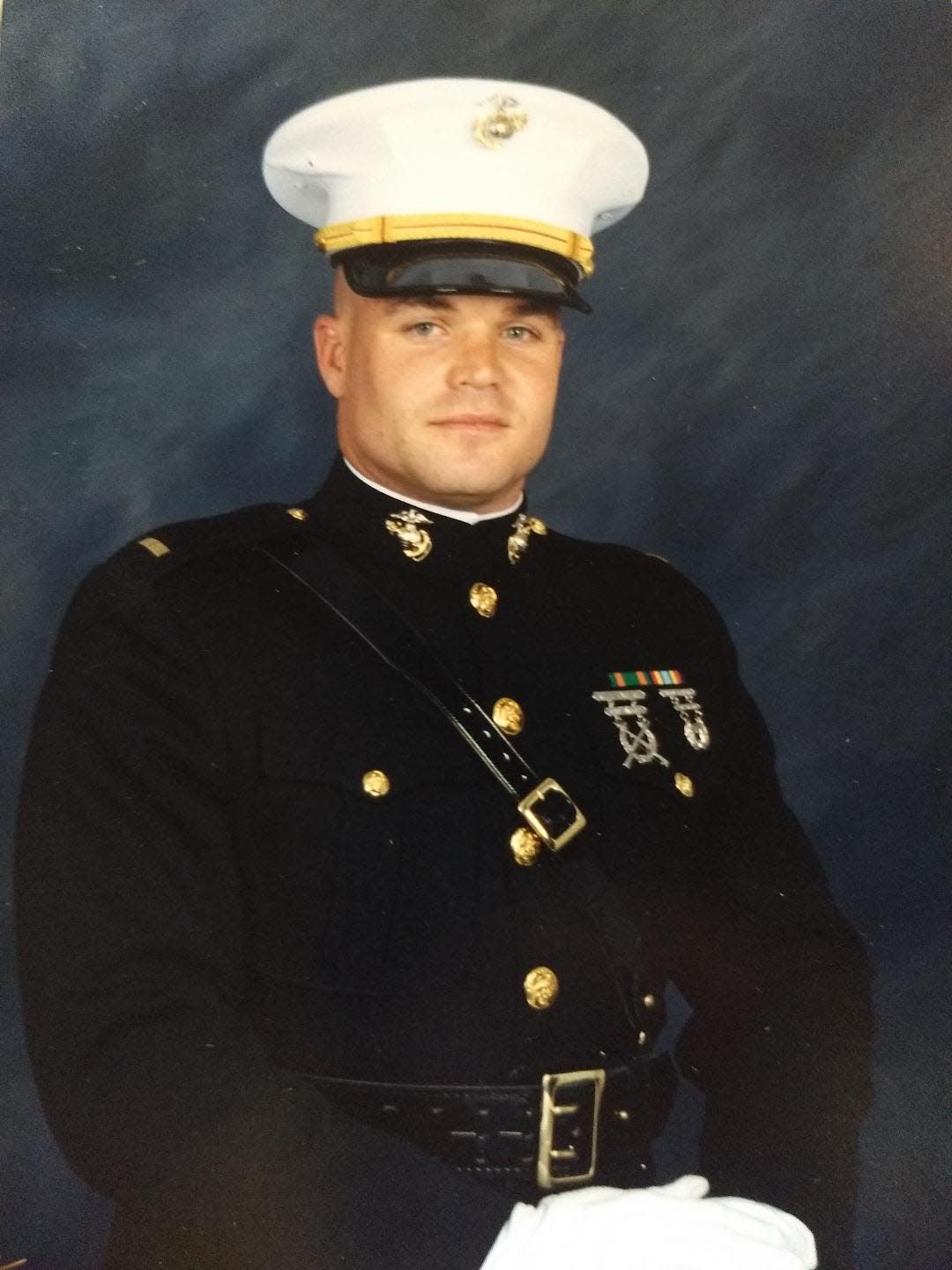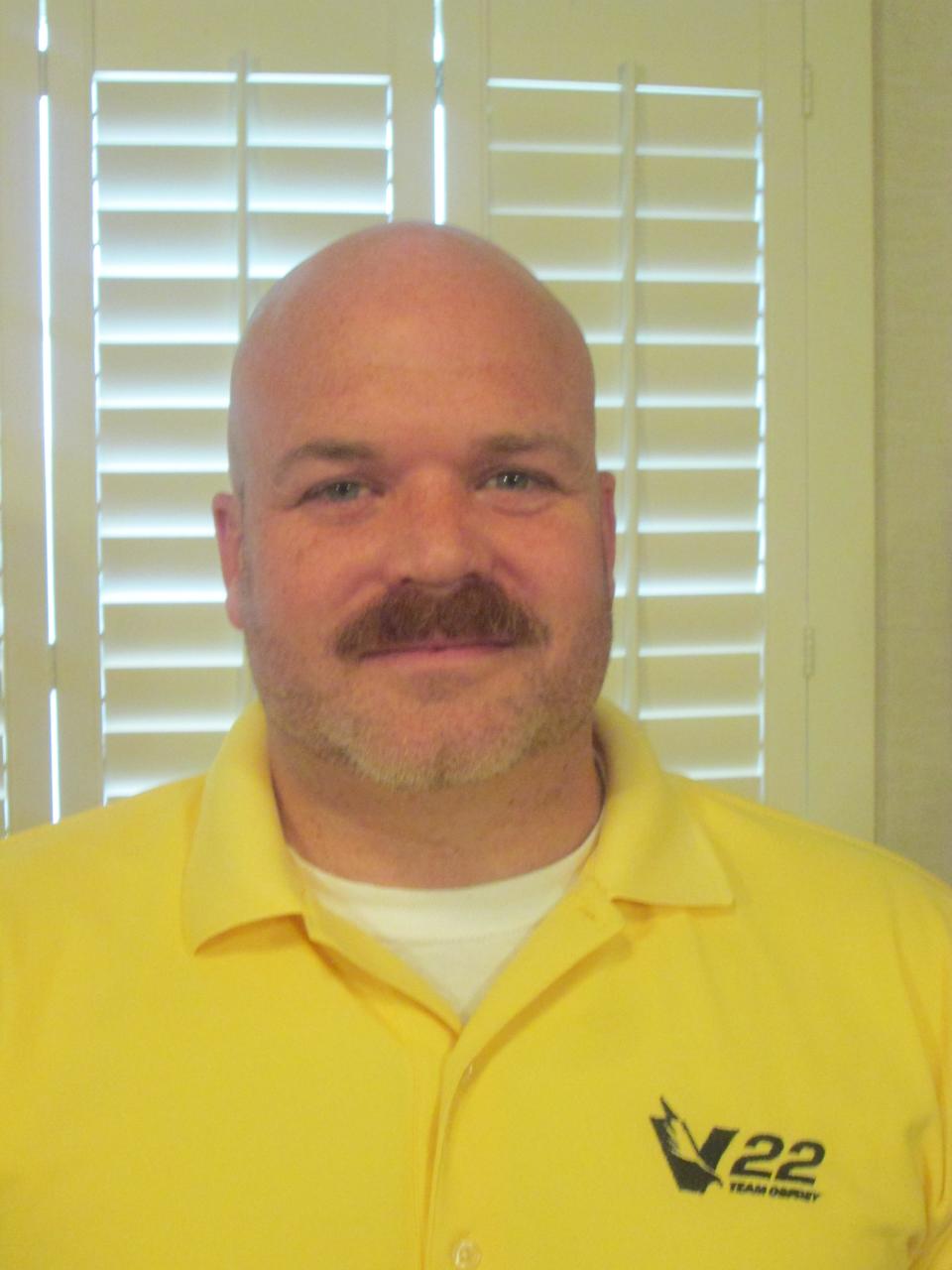Q&A: The Makings of a Marine


This is the first installment of an interview that historian Joe Todd did with Scott Harris on Dec. 26, 2018, in Bartlesville. The interview has been lightly edited for length and clarity.
Todd: Sir, where were you born?
Harris: I was born in Buffalo, New York.
T: When is your birthday?
H: I was born in 1975.
T: Who is your father?
H: Phil Harris.
T: And your mother?
H: Betty Lou Harris.
T: Did you go through school in Buffalo?
H: No, my dad was a preacher and I spent most of my time growing up in Kansas and graduated high school in Greely, Colorado, then I came to Bartlesville for college and got a Batchelor’s degree in Mathematics and Business Administration.
T: What year did you graduate high school?
H: 1993.
T: Why did you come to the Wesleyan University here?
H: I have family ties. I am a third generation alumni of Bartlesville Wesleyan College, back when it was up in Kansas.
T: In your schooling, who was your favorite teacher?
H: Jim Leininger was the favorite professor.
T: Why was he your favorite?
H: He was my academic advisor in the math department. When I first started, I was going for a mechanical engineering degree and planned to spend two years at Wesleyan and then going to the University of Wyoming. He took the role of academic advisor seriously and he became a mentor and made sure I had everything I needed to prepare for mechanical engineering. When that didn’t work out, I came back to Wesleyan and I signed up for some math classes and it was just him and me and we started meeting in his officer for the classes instead of the actual classroom. I had several other math classes where they have been two other students.
T: Did you play sports in high school?
H: I played football and wrestled all four years. I played soccer when I got into Wesleyan.
T: What did you do for recreation in high school?
H: Hunt, fish and played sports. I lifted weights and worked on cars.
T: What did you do after high school?
H: I worked construction and went to school. I crammed four years of college into five.
T: In construction, who did you work for?
H: In Bartlesville, I worked for Victor Jones. Victor Jones was an old family friend and did a lot of work for him.
T: When did you get your degree?
H: 1998.
T: What did you do after you got your degree?
H: What every business major needs to do, I went to work for a bank. I spent nine months working at WestStar Bank in the manager training program and I quickly realized I was not a banker. I was not ready to sit in an office in Oklahoma. I wanted to experience other things.
T: What did you do?
H: I enlisted in the Marine Corps.
T: When did you join the Marines?
H: I started talking to a recruiter after hours and I became good friends with Sergeant Allen, the recruiter. In January 1999, I started talking to him seriously and I shipped off to Boot Camp Feb. 1, 1999.
T: Why did you join the Marines over the Army, Navy or Air Force?
H: Professionalism. You never walked into the recruiter’s office and find it a mess. You never talked to the recruiter and felt he didn’t have all of his ducks in a row. We had a training coach in high school that was a retired sergeant major and the way they carried themselves. You never saw a weakness or see them overwhelmed.
T: Where did you go for Boot Camp?
H: San Diego.
T: Tell me about Boot Camp.
H: I was one of the older guys in our platoon, Platoon 2034. We had Staff Sergeant Bullard and Staff Sergeant Weise and Staff Sergeant Green. I can’t remember the fourth drill sergeant.
Being a little older and knowing it was only going to be thirteen weeks and try to prepare for the chaos of Boot Camp. Getting thrashed in the sand pit and watching the wind blow through the tops of the palm trees. It was not but it was still beautiful. We went up to Edson Range for third phase and walking up the hills and even though it was beautiful, it could crush you.
Looking back, you walk in there and the first hour, everybody goes from whoever they were as an individual to being stripped down, head shaved and you are all wearing the same tightie whities, green sweat pants and you can’t tell one from the other for the first week. They strip away all identity you had before you went in there. You go from thinking you know everything and living by yourself and a good sense that everything in under control then being told you can’t even put your socks on right. They way they break you down and build you back up is pretty aggressive the whole way through.
To be continued.
This article originally appeared on Bartlesville Examiner-Enterprise: Q&A: The Makings of a Marine

